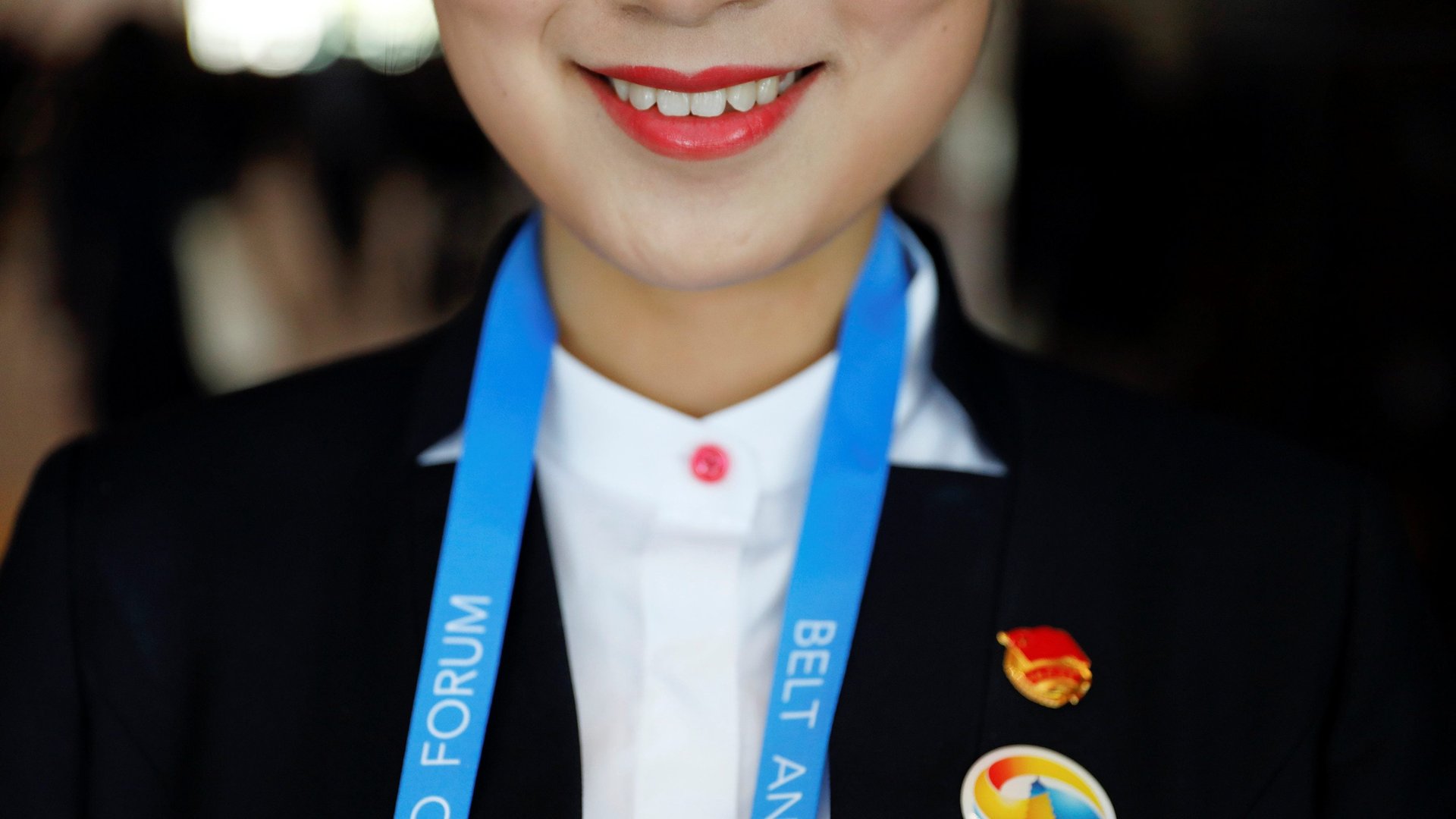The epic eye roll that exposed the sham of China’s biggest political gathering
The near-unanimous approval of a constitutional amendment to abolish term limits for president Xi Jinping, and a journalist rolling her eyeballs over an obsequious question, are the two most memorable incidents that happened at this year’s Two Sessions meetings, China’s biggest annual political gathering.


The near-unanimous approval of a constitutional amendment to abolish term limits for president Xi Jinping, and a journalist rolling her eyeballs over an obsequious question, are the two most memorable incidents that happened at this year’s Two Sessions meetings, China’s biggest annual political gathering.
Both events highlight the extent to which a meticulous control of information and intolerance of dissent are used to maintain China’s political image.
At a news conference on the sidelines of a legislative meeting yesterday (March 13), Chinese journalist Liang Xiangyi, a reporter for domestic TV network China Business News, was caught on camera doing a dramatic eye-roll as journalist Zhang Huijun asked a softball question next to her. Zhang, who introduced herself as the operating director of a US-based broadcaster, cheerfully asked an official a question relating to China’s “One Belt, One Road” infrastructure plan. Rather than directly asking a question, Zhang used most of her 44 seconds (video) to summarize China’s achievements in the area.
Footage of Liang rolling her eyes and turning her head backwards in apparent displeasure instantly went viral, and inspired a series of GIFs, video parodies, and other memes on China’s internet. Censors moved quickly to block people from searching Liang’s name on Weibo, China’s most popular microblogging service. A report from Hong Kong’s South China Morning Post said that Liang’s media accreditation to cover the legislative meetings was revoked, citing one of her colleagues.

Still, support continued to pour in for Liang on her Weibo account, which quickly accumulated more than 190,000 followers and counting. “You are the only thing I remember since the beginning of the Two Sessions,” one blogger wrote under one of Liang’s Weibo posts. “A slap in the face to formalism,” another person said.
The eye roll and the tame question serve to remind the public that the biggest political gathering in China is merely for show. The country’s top legislative body has never rejected any proposal from the ruling Communist Party, and this year passed a constitutional change that paves the way for Xi to remain as president beyond his original retirement date of 2023, and perhaps for as long as he desires. 2,958 delegates voted for the measure, and only five voted against or abstained.
News conferences are a major component of China’s political facade, mostly used as platforms to air views that present China in a favorable light. Officials usually cherry-pick questions from publications that are affiliated with or have close relations to the party, while avoiding calling on journalists from mainstream foreign outlets. Zhang, who was supposed to represent foreign media, hails from American Multimedia Television USA in Los Angeles, which has partnered with China’s state broadcaster in the past. When asking her long-winded question, Zhang chose to refer to China as “our country” in an elevated tone.
The BBC’s China correspondent, Stephen McDonell, complained in a column yesterday (March 13) about Chinese journalists who pose softball questions during “the one opportunity each year” the media gets to face foreign minister Wang Yi during the Two Sessions. According to McDonell’s account, none of the questions this year had anything to do with contentious issues including North Korea, the South China Sea, and US-China trade tensions.
The climax of the Two Sessions will come on March 20, when the political meetings wrap up with a news conference held by China’s premier, Li Keqiang. Authorities pre-approve every question asked on this occasion, and foreign journalists in particular must submit questions in advance and often have to negotiate the wording with officials.
Li, for his part, is expected to stick to the Communist Party’s script, while occasionally marveling at foreign reporters’ Mandarin skills as a show of cordiality.